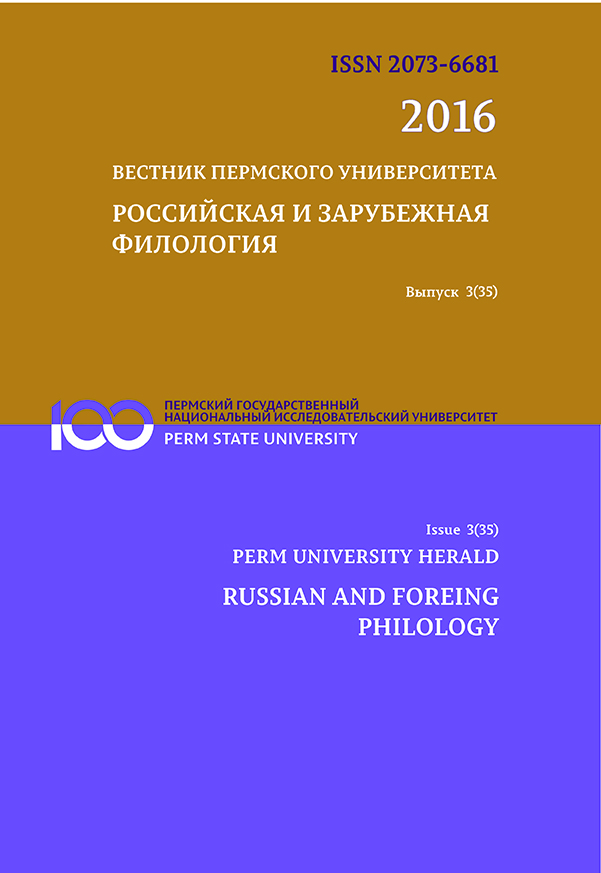THE ROLE OF A TRANSLATOR AS A CULTURAL MEDIATOR IN THE PROMOTION OF TAIWANESE COMPANIES IN THE POST-SOVIET AREA
DOI:
https://doi.org/10.17072/2037-6681-2016-3-75-84Keywords:
creative translation, cultural intermediation, culture-specificity, encyclopedic (interdisciplinary) knowledge, phonetic translation method, Relevance theory, Skopostheorie.Abstract
This research focuses on Taiwanese and Russian business relations and aims to elucidate how it is influenced by both parties’ language and culture when establishing international economic relations. The study considers commercial translation and difficulties encountered when developing cross-cultural relations. It presents a perspective derived from Taiwan’s international industrial development and focuses on language barriers and a lack of competence in understanding culture in international collaborations. The research investigates existing issues and suggests solutions in terms of accuracy in language and culture necessary for establishing closer and more successful intercultural ties between Russia and Taiwan.This research includes a researcher participant and inductive methodologies, with the author’s observational data collected over ten years of interpretation and translation. With these components and the application of several commonly adopted translation theories, it provides a unique, cultural perspective based on work derived from Taiwanese and Russian business and cultural intermediation. As a result, solutions have evolved on how to overcome language and cultural barriers and improve cooperation between Taiwan and Russia. This research can greatly assist in the development of communications and exchange in the realm of international business.References
Baker M. In other words: A Course book on Translation. New York: Routledge, 1992. 304 p.
Belloc H. On Translation. Oxford: The Clarendon Press, 1931. 15 p.
Benjamin W. Selected Writings: The Task of the Translator. Cambridge, MA: Harvard University Press, 1923; 1996/2004. Vol. 1. P. 253–263.
Bhabha H. How Newness Enters the World. J. Procter (Ed.) Writing black Britain 1948-1998. An interdisciplinary anthology. Manchester and New York: Manchester University Press, 2000. P. 300–306.
Catford J. C. A linguistic theory of translation: an essay in applied linguistics. London: Oxford University Press, 1965. 103 p.
Haque Z. Translating Literary Prose: Problems and Solutions. International Journal of English Linguistics. 2012. Vol. 2(6). P. 97–111.
He Ch., Xiao Yu. Brand name translation in China: An overview of practice and theory. Babel. 2003. 49(2). P. 131–148.
House J. Towards a linguistic theory of translation as re-contextualization and a Third Space phenomenon. Linguistica Antverpiensia, New Series – Themes in Translation Studies. 2008. No. 7. P. 149–175.
Jakobson R. On linguistic aspects of translation. R. A. Brower (Ed.) On Translation. Cambridge, MA: Harvard University Press, 1959. P. 232–239.
Pommer S. E. No creativity in legal translation. Babel. 2008. 54(4). P. 355–368.
Sang J. & Zhang G. Communication across languages and cultures. A perspective of brand name translation from English to Chinese. Journal of Asian Pacific Communication. 2008. 18(2). P. 225–246.
Shuttleworth M., Cowie M. Dictionary of translation studies. Manchester: St Jerome Publishing, 1997. 233 p.
Sperbe D., Wilson D. Relevance: Communication and Cognition. Oxford: Basil Oxford Blackwell, 1986. 279 p.
Sternberg R. J. (Ed.) Handbook of Creativity. Cambridge: Cambridge University Press, 1999. 502 p.
Vermeer H. J. Skopos and commission in translational action. A. Chesterman (Ed.) Readings in translation theory. Helsinki: Oy Finn Lectura, 1989. P. 173–187.
Vermeer H. J. Translation today: Old and new problems. M. Snell-Hornby, F. Pochhacker, K. Kainel (Eds.) Translation studies: an inter-discipline. Amsterdam, Philadelphia: John Benjamins Publishing Company, 1994. P. 3–16.
Vermes A. The problem of cultural context in translation and translator education. Eger Journal of English Studies. 2007. VII. P. 129–141.
Vradiy S. Russia’s Unofficial Relations with Taiwan. I. Akihiro (Ed.) Eager Eyes Fixed on Eurasia. Slavic Research Center, Hokkaido University. 2007. Vol. 2. P. 219–234.
Wiersema N. Globalization and Translation: A discussion of the effect of globalization on today’s translation. Translation Journal. 2004. 8(1). Available at: http://translationjournal.net/journal//27liter.htm. (accessed 11.01.2016).
Wills W. Knowledge and Skills in Translator Behaivior. Amsterdam/Philadelphia: John Benjamins, 1996. 256 p.
Yakovleva E. Functions of attributes in translation of advertisement. International Youth Conference “Translation as factor of development of science, technology and sport in the modern world” within the Federal special-purpose program “Scientific and scientific-pedagogical personnel of innovative Russia in the years 2009-2013”. Vyatka State Humanities University. 05th-06th of September 2012. P. 287–289.




